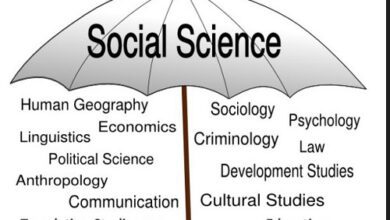Difference between law and theory Similarities and FAQs
Law and theory
In this article we will provide you the difference between law and theory Similarities and FAQs.
what does law mean
The law is a mandatory and generally written rule of conduct, issued by the government or the competent authority to regulate relations between citizens and their life in society. These regulations are necessary to ensure that all members of the community respect their rights and fulfill their responsibilities. The law has different purposes, such as setting ground rules for how we should behave, promoting social order, protecting our civil liberties, and even promoting social justice. Laws vary from country to country; however, in general terms they have the same human language. The objective: to maintain a balance between our individual rights and collective security.
what does theory mean
Theory is a generally accepted explanation for understanding and predicting observable outcomes. It is based on logic, empirical evidence, and scientific principles. It involves explanations of why something occurs or exists, which can be confirmed by psychological experiments as another example of quantitative research. We find countless of them, and from many different categories. Most of these studies are experimental evidence and/or anthropological studies. The key elements of a theory are conjectures (hypotheses) about the behavior of the natural world; general principles derived from the hypotheses; conclusions about certain particular areas; comparison with other related fields to assess consistency and broader implications; and systematic bases for formulating new hypotheses.
Similarities Between Law and Theory
The words law and theory have much in common.
Both are abstract ideas that attempt to explain a general phenomenon.
A law is a precise statement about the behavior of objects or phenomena within the natural world, while a theory is a set of interrelated concepts described to explain particular observations.
In both cases, they are based on empirically proven facts, although the theories have a higher degree of abstraction than the laws.
Both terms represent mental models used by science to interpret the behavior of the material and natural world around us.
Difference between law and theory
A law is a set of rules, established by the State, which have the force to be binding for all subjects subject to them.
On the other hand, a theory is not related to the law and is defined as a set of explanatory principles of human behavior in different contexts.
Theories can be created from within an academic field or outside it, and their components are hypotheses about human behavior based on conclusive empirical evidence.
Unlike laws, theories lack the binding nature of the latter and are open to diversity of interpretation.
Frequent questions
What the law?
The law is a set of rules established by the State in order to regulate coexistence and social organization.
What is the synonym of law?
Ruler.
How do you say I read or law?
It’s called “law“.
What is law for philosophy?
The law for philosophy is a set of principles and rules that guide philosophical thought. This law focuses on basic questions about the meaning, nature, and ultimate ends of human life. It is used as a theoretical framework to better understand the world through the logical analysis of fundamental concepts, arguments and conclusions, as well as to discover possible solutions to complex existential and intellectual problems.



